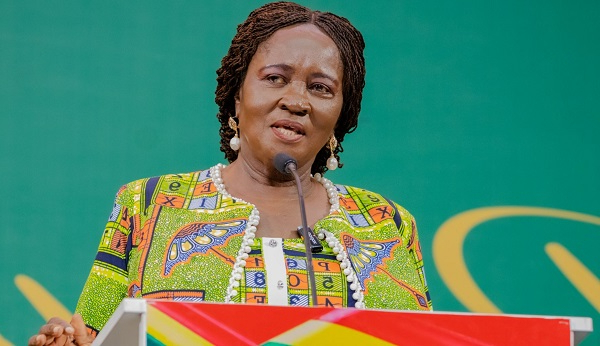
Vice President Professor Naana Jane Opoku-Agyemang has issued a compelling call to West African leaders, urging them to fortify the regional architecture dedicated to combating Money Laundering (ML), Financing of Terrorism (TF), and Weapons Proliferation.
Speaking at the 2nd Extraordinary Meeting of the Intergovernmental Action Group Against Money Laundering in West Africa (GIABA) in Accra, the Vice President underscored the indispensable link between robust financial crime prevention and the sub-region’s security and sustainable development.
GIABA, established by the Economic Community of West African States (ECOWAS) as a FATF-style regional body (FSRB), plays a critical role in assisting member states to implement international standards against financial crimes.
Its efforts are crucial in a region where illicit financial flows are estimated to cost African economies billions of dollars annually, often fuelling corruption, organised crime, and insurgency.
The Vice President commended GIABA members for their dedication to ensuring that West African states adopt adequate measures in line with acceptable international practices and standards.
“Your work, often behind the scenes, is of great importance to regional security and sustainable development.
This is an opportunity for reflection and foresight, and to reimagine how our regional institutions respond to emerging threats, adapt to evolving contexts, and expand the frontiers of cooperation,” she stated, acknowledging the complex and evolving nature of financial crimes.
Professor Opoku-Agyemang stressed the urgent need for a resilient and adaptive regional framework.
“As leaders and stakeholders, our responsibility is to ensure that our regional architecture for combating Money Laundering and the Financing of Terrorism and Weapons remains robust, inclusive, and forward-looking. That architecture must be capable of addressing emerging threats within stable jurisdictions and across all of West Africa,” she emphasised.
This call is particularly pertinent given the escalating security challenges in the Sahel and parts of West Africa, where terrorist groups rely on illicit financial networks to fund their operations and acquire weapons.
The effective disruption of these financial lifelines is a key component of counter-terrorism strategies.
A significant aspect of the Vice President’s charge was the imperative for GIABA to engage “all ECOWAS countries, including countries currently in transition.”
This directly references nations like Mali, Burkina Faso, and Niger, which have experienced recent military takeovers and are currently suspended from some ECOWAS political bodies.
Their political instability often creates governance gaps that can be exploited by illicit financial actors, making their inclusion in AML/CFT efforts crucial for regional security, even amidst political differences.
Concluding her address, Professor Opoku-Agyemang called for unwavering unity and collaboration among member states. “Let this meeting serve not only as a forum for policy, but also as a platform for a partnership that will lead to a more united and resilient West Africa,” she urged.
Ghana, as a stable democracy and active member of ECOWAS, regularly hosts and participates in regional security and economic initiatives.
The Vice President’s address reaffirms Ghana’s commitment to playing a leading role in fostering collective action against threats that undermine the stability and prosperity of the West African sub-region.
The success of these efforts hinges on sustained political will, enhanced cross-border cooperation, and the rigorous implementation of international anti-money laundering and counter-terrorism financing standards across all member states.
DISCLAIMER: The Views, Comments, Opinions, Contributions and Statements made by Readers and Contributors on this platform do not necessarily represent the views or policy of Multimedia Group Limited.
DISCLAIMER: The Views, Comments, Opinions, Contributions and Statements made by Readers and Contributors on this platform do not necessarily represent the views or policy of Multimedia Group Limited.


